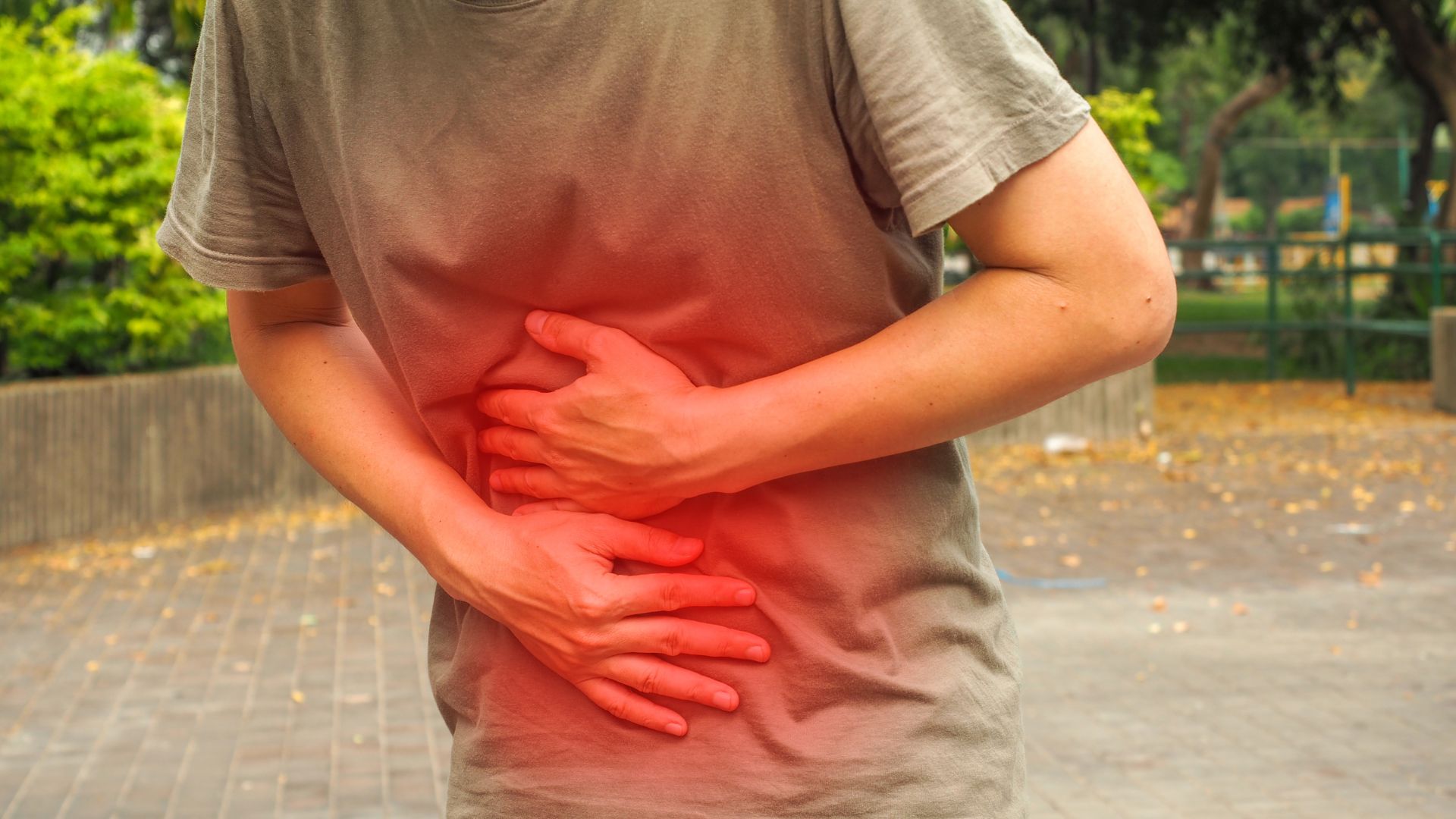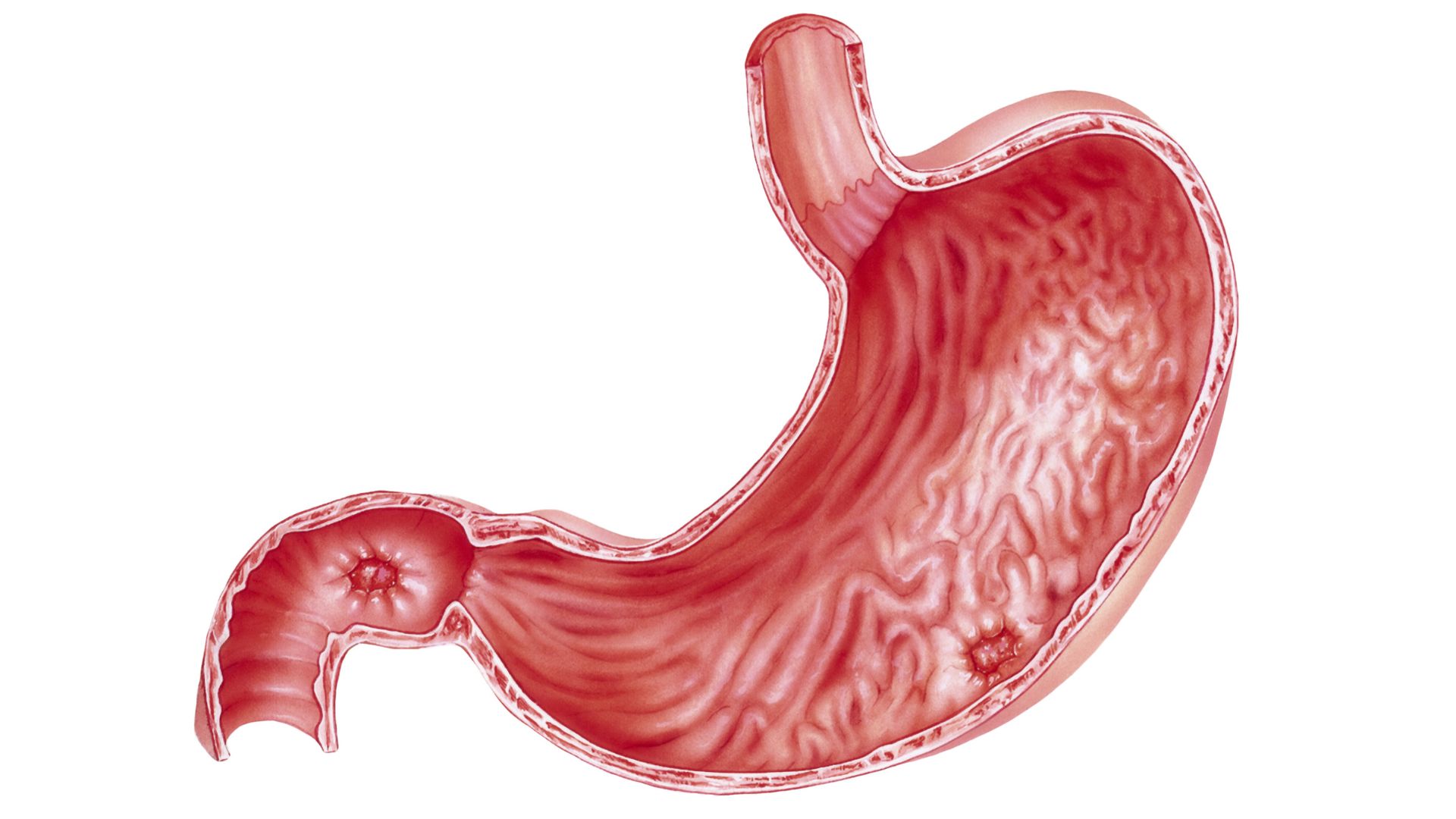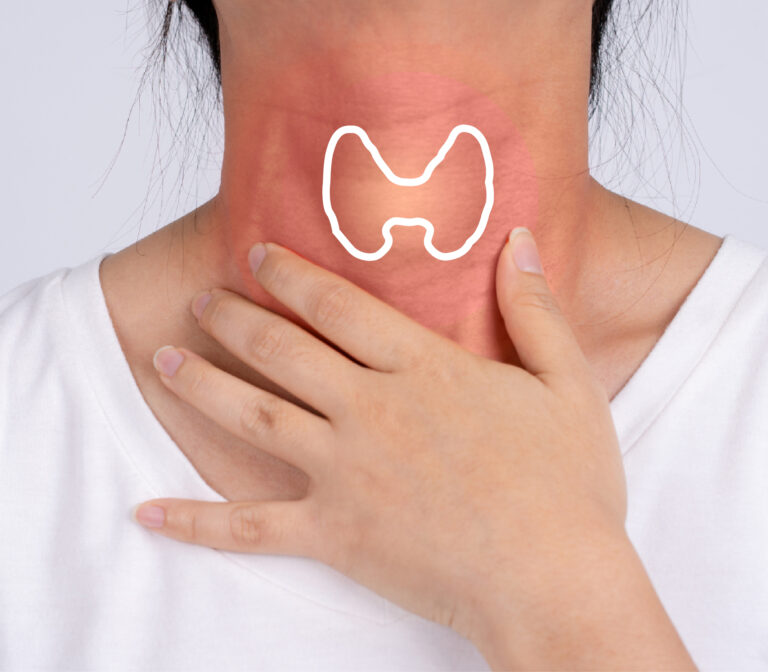Do you feel easily nauseous, even when you are not in a moving vehicle? Do you have bloatedness in your stomach or indigestion? Or, worse still, do you suffer from acute abdominal pain at times?
Do not ignore the symptoms! They are all signs of stomach ulcers. Neglecting these signs could lead to the worsening of your condition. In severe cases, the stomach wall may even perforate or tear, causing bleeding.
However, not all is lost. By seeking medical attention and taking appropriate measures to manage the condition, it is possible to recover. It is crucial to receive proper treatment as early as possible. Read on to find out if your symptoms match those of stomach ulcers and to determine if they require immediate attention.
Table of Contents
ToggleWhat are stomach ulcers?
Stomach ulcers, or gastric ulcers, are sores that emerge in the lining of your stomach or small intestine, which can cause pain and indigestion.
Typically, your stomach produces a strong acid to aid in the digestion of food and combat against harmful microbes. To shield the bodily tissues from this acid, the stomach secretes a thick layer of mucus. When the protective layer of mucus fails to work properly, the stomach tissue can be irritated by stomach acid, which can lead to the development of ulcers within the stomach.
What are the causes of stomach ulcers?
Helicobacter pylori (H. pylori)
H.pylori is the strongest known risk factor for stomach ulcers. It is a bacterial infection that targets the lining of the stomach.
H.pylori weakens the protective layer of mucus that lines the stomach and duodenum, which can lead to stomach acid reaching the delicate tissues underneath. The presence of both the acid and the bacteria can irritate the lining, causing a sore or ulcer.
Non-steroidal anti-inflammatory drugs (NSAIDs)
Another common cause of stomach ulcers, is the long-standing use of nonsteroidal anti-inflammatory drugs (NSAIDs) like iBuprofen, aspirin or naproxen. NSAIDs can lead to ulcers as they meddle with the stomach’s ability to shield itself from gastric acids. Although gastric acids can be important for digestion, they can result in damage if the protective barriers of the stomach are undermined. The layer of protective mucus that shields the stomach from gastric acids is normally produced by foveolar cells that line the stomach. However, NSAIDs slow the formation of protective mucus in the stomach and repress the body’s natural defences against gastric acids, possibly giving rise to inflammation in the stomach lining. As time goes on, capillary blood vessels may rupture due to such a situation, resulting in bleeding and the emergence of an ulcerative sore in the mucosal lining.
Note that spicy food and stress are not known to directly cause stomach ulcers, although they may exacerbate their symptoms. Also, not all abdominal pains are attributable to stomach ulcers. Ask your doctor to help you assess your condition.
What are the symptoms of stomach ulcers?
Stomach ulcers usually display a range of symptoms. The severity of the stomach ulcer in question has a positive correlation with the severity of the symptoms. In other words, if you have a serious case of stomach ulcers, you will more likely experience more acute symptoms like intense abdominal pains as compared to someone suffering from milder stomach ulcers.
Common Symptoms
Stomach ulcers are typically associated with a range of common symptoms that include burning pain in the stomach, nausea, and bloating. Individuals with stomach ulcers may also experience heartburn, a feeling of fullness or heaviness in the stomach, and a loss of appetite. Symptoms can be intermittent or chronic, and they may worsen at night or after eating certain foods.
Serious Symptoms
If a stomach ulcer is left untreated, it can lead to more serious symptoms, such as vomiting blood or passing black stools. These symptoms are caused by internal bleeding and require immediate medical attention. Other serious symptoms of stomach ulcers include sudden, sharp stomach pain, difficulty breathing, and unexplained weight loss.
Less Common Symptoms
Less common symptoms of stomach ulcers may include burping, acid reflux, and chest pain. These symptoms are caused by the acid from the stomach flowing back up into the oesophagus. Individuals with stomach ulcers may also experience fatigue, weakness, and fainting, which can be caused by internal bleeding. In rare cases, stomach ulcers can cause a perforation or hole in the stomach wall, which can cause sudden and severe pain, fever, and difficulty breathing.
If you experience any of these symptoms, it is important to see your doctor. Stomach ulcers can be treated, and early treatment can prevent serious complications.
How are stomach ulcers diagnosed or identified?
To diagnose if you have stomach ulcers, your doctor must first examine your medical history and your existing symptoms. Furthermore, they may inquire about any over the counter (OTC) medications you are currently taking.
Breath Test
Your doctor may use a breath test to see if you have H. pylori infection. This involves drinking a special liquid and then exhaling into a sealed bag. If H. pylori is present in your system, the breath sample would reveal high levels of carbon dioxide.
Upper gastrointestinal (GI) endoscopy and biopsy
To confirm a diagnosis of stomach ulcer and determine its underlying cause, doctors may recommend an upper GI endoscopy. This procedure involves the use of an endoscope, which is a flexible tube with a camera that allows the doctor to view the lining of your upper GI tract, including your oesophagus, stomach, and duodenum. During the procedure, the doctor may also obtain biopsies by passing an instrument through the endoscope to collect small pieces of tissue from your stomach lining. These tissue samples will be examined under a microscope by a pathologist.
Barium Swallow
Alternatively, you could be asked to swallow a drink that contains barium (a thick white liquid). It outlines your upper gastrointestinal tract so that your doctor can better examine your stomach and small intestine using X-ray technologies.
How are stomach ulcers treated?
If your ulcer stems from an H. pylori infection, antibiotics will be administered as part of your treatment. These antibiotics are effective at eliminating the bacteria, reducing the likelihood of the ulcer recurring.
In cases where NSAIDs are the cause of your ulcer, a proton pump inhibitor (PPI) will be prescribed for your treatment. Your doctor will provide you with these medications and discuss whether it’s advisable to continue using NSAIDs. They may also suggest alternative pain relievers like paracetamol.
After receiving treatment, most stomach ulcers typically require several months to fully heal. Nevertheless, it’s important to note that stomach ulcers can return post-treatment, although the risk of recurrence is lower when the underlying cause is properly addressed.
Other Factors
If complications arise and your condition becomes more severe, you may need surgery. For instance, if your ulcer is bleeding profusely, you would most probably be hospitalized for intensive medical care with blood transfusions and IV ulcer medications.
Bleeding can be attributed to ulcers giving rise to black stool (the appearance of blood after undergoing digestion) or the vomiting of blood. Perforation or stomach tear happens when the ulcer deepens and goes through a hole right through the muscular wall of the stomach or duodenum. This hole leads to a spillage of stomach contents into the abdominal cavity, leading to infection.Therefore, emergency surgery is needed. Surgery might entail a total removal of the entire ulcer, transferring tissue from another part of your intestines and covering them over the ulcer location or tying off a bleeding artery.
Occasionally, your stomach ulcer can heal with a scar causing a deformity of the stomach outflow. This condition is known as a gastric outlet obstruction and necessitates surgery. Thankfully, swift and effective treatment options mean that more serious consequences of stomach ulcers are relatively uncommon.
How can you prevent further instances of stomach ulcers?
As the saying goes, “prevention is better than cure.” Hence, to prevent stomach ulcers from re-surfacing again, avoid their causes. For example, do not consume NSAIDs on a long-term basis.
Although your diet would not directly cause or cure a stomach ulcer, a wholesome diet with lots of fruits, vegetables and fiber can boost your intestinal tract and overall health. Having said that, there are foods such as broccoli, cabbage, radishes, spinach, sauerkraut, apples and berries that may counter H. pylori or generate more healthy bacteria in your body. Consume foods with a high amount of Vitamin C, a powerful antioxidant, to tackle H. pylori. Try to keep away from spicy and sour foods to mitigate any acid refluxes while your ulcer is healing.
While alcohol, smoking, stress, delayed and irregular meals are generally related to stomach ulcers, they themselves do not directly cause them. Nevertheless, these factors might impede the speed of recovery or worsen your symptoms.
Can Stomach Ulcers Lead to Stomach Cancer?
Untreated stomach ulcers, especially those caused by H. pylori, can increase the risk of stomach cancer. The bacteria can damage the lining of the stomach, leading to chronic inflammation, which over time can lead to changes in the cells of the stomach lining and increase the risk of cancer. However, not all stomach ulcers will develop into cancer, and the risk can be significantly reduced with proper treatment and management of the underlying causes. Regular follow-up with a healthcare provider is important for individuals with a history of stomach ulcers to monitor for any signs of cancer.
What can you do if you have stomach cancer / gastric cancer?
If you are diagnosed with stomach cancer / gastric cancer, there are several treatment options available depending on factors such as the stage of cancer, location, and your overall health. Treatment may include surgery, chemotherapy, radiation therapy, or a combination of these.
Surgery is the most common treatment for stomach cancer / gastric cancer, involving removal of part or all of the stomach. Other options such as chemotherapy and radiation therapy may be used before or after surgery, or in cases where surgery is not possible.
Immunotherapy and targeted therapy may also be used in some cases. Immunotherapy helps your immune system fight the cancer cells, while targeted therapy targets specific molecules or proteins in the cancer cells that help them grow.
Protect Your Health Today
If you want to seek reassurance on your stomach condition or determine if you have stomach ulcers or other stomach issues, you can have a thorough discussion with Dr. Kum at Centre for Screening and Surgery. Our clinic specializes in cancer screening and treatment of cancers at an early stage with minimally invasive procedures. Call us to book an appointment today!






